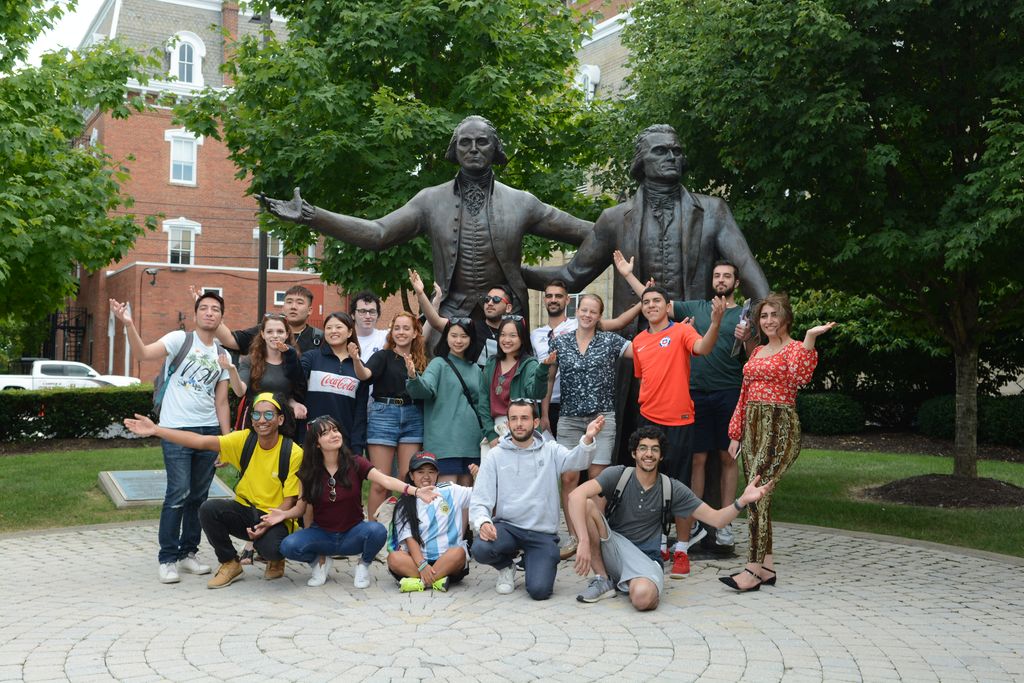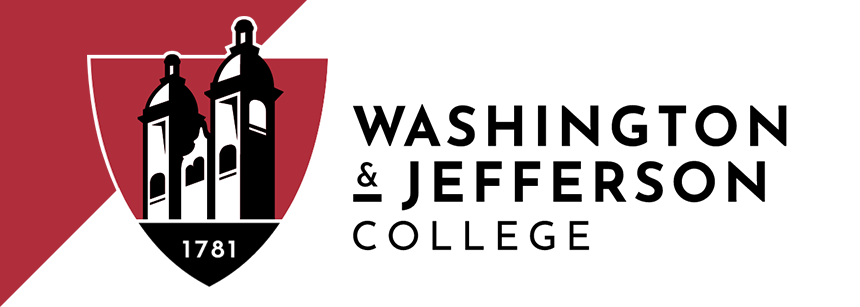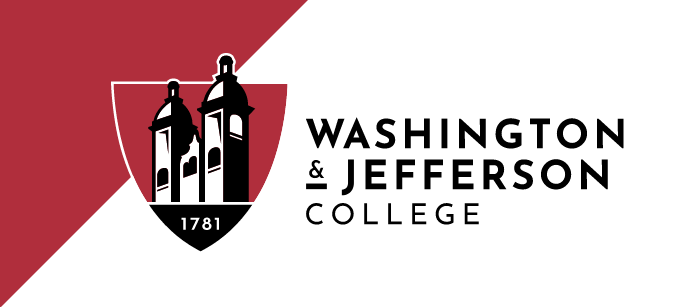The Magellan Project FAQs
You've got questions? We have answers!
If you have any other questions, please contact professionalpathways@washjeff.edu. We hope that you will consider applying for this great opportunity.

Funds associated with the Magellan Project are available to W&J first-year students (Geary Award), sophomores (Walker Award), and juniors (Kelso Award) who have a GPA of at least 2.5. Franklin Internship Awards are available to students who have a GPA of at least 2.5.
A broad array of projects are eligible for these awards. All projects, however, should challenge students to be creative, resourceful, and independent. They should involve purposeful travel (either foreign or domestic) and exploration in new and unfamiliar surroundings. Magellan funds may be used for student-initiated research, to support a creative project that the student proposes, or to supplement internships.
Magellan experiences are typically 3-12 weeks long.
No, Magellan funds cannot be used to pay for tuition or expenses related to a credit-bearing experience offered by another institution (or third-party provider).
Working with a third party provider reduces your independence and increases the cost of your project. Therefore, in almost all cases, it is strongly discouraged. There are times, however, when working with a third party is the only way to accomplish your goals. If you wish to work with a third-party provider, the burden will be upon you to prove that it is necessary, that you could not do the project on your own. Also, in most cases, you will be asked to remain abroad or at your project location for a significant period of time when you are not under the aegis of a third party. Any tuition costs imposed by a third party will not be covered by Magellan.
Yes. However, in those cases, you will be expected to explore beyond the location where you are studying for an extended period. And, in most cases, the cost of your travel to your study abroad site will not be covered.
No. While we certainly encourage international projects, foreign travel is not a requirement. Although your project does not need to involve foreign travel, it should be designed to “stretch” you beyond your comfort zone and take you to an unfamiliar environment.
In most cases, no. The point of the Magellan Project is to challenge you in a new environment. Franklin Internship Awards might involve returning to your home country, but preferably not to a familiar part of it.
Absolutely. You will need to clarify the status of your internship or study abroad experience. If your project is approved for funds but the internship is not granted, you may have the opportunity to propose a back-up experience. If you know what your back-up plan would be, you may include that as part of your project description.
Faculty members may not accompany you on your Magellan trip. Some students have proposed collaborative Magellans with other students. In these cases, each student must have his or her own project, and there should be a reason for traveling together. Note that approval/acceptance of one student’s Magellan proposal does not guarantee acceptance of others with whom he or she is traveling.
In most cases, no, since the time allotted then is so short.
As part of the application process, students research and craft a budget respective to their proposed project. Students are expected to present a budget that is economically mindful. Each scholarship award reflects the merited, proposed project with respect to location, duration, and overall scope of the project.
In most cases, you will receive 75% of your funding when you submit the necessary paperwork to accept your award. After you return and submit your final report with receipts as needed, you will receive the remaining 25% of the award.
In general, W&J awards may not be “stacked” with other W&J awards.
Yes. We encourage you to seek multiple forms of funding. You may be able to secure a paid internship; you may be able to find foundation or corporate funding. Magellan funds are designed to support part of your experience, so other funds will be helpful.
We encourage you to apply for the funding that is most appropriate for the project that you are pursuing. If you are pursuing an internship that is related to your career goals, you should apply for the Franklin Internship Award. If you are doing research in the sciences, you should pursue funding through the Merck Internship. For more information on the Merck Internship, please contact Dr. Candy DeBerry. If you are doing research in environmental studies, you should pursue funding through the Environmental Studies grant. The Geary (freshmen), Walker (sophomore), and Kelso (junior) Magellan Awards are the most general of the W&J forms of funding, able to cover the broadest number of applications (internships, travel, or research). The central requirement is that there be an independent project as part of the experience.
Yes. However, your second Magellan experience should be significantly more challenging in terms of rigor and independence than your first one and a third must be even more challenging than either of the first two. In most cases, a second or third Magellan should take you to a new location.
You are expected to live as cheaply as is possible while remaining safe. This means that you will be looking for hostels and often eating from grocery stores rather than in restaurants. You should talk with your advisor or with students who know the areas you will visit to determine the best means of finding lodging. In preparing your budget, you should have specific lodging in mind, although you need not stay at the places you use for cost estimating. However, knowing where you will stay when you first land at your destination is required.
You need to craft a careful and compelling Project Description (500-750 words) which defines what you are proposing to do. You need to think early about applying for internships or making contact with people you will need to see as part of your proposed project. You need to reflect on your personal background and goals in crafting your Personal Statement (750-1000 words). You also need to gather information in order to submit a proposed budget for your experience.
The Project Description states very clearly what you propose to do, including details about where, when, and how you are going to do it. This Project Description should also make a compelling case that your project is feasible (that you can gain access to the places or people that you want to see) as well as interesting and/or significant to you. The Personal Statement should demonstrate that you are prepared to do this project—by virtue of previous coursework, training, or experience. For a Franklin award, the Personal Statement should also demonstrate how the proposed project will advance and extend your work at W&J—and also contribute to your future plans. For Geary, Walker, and Kelso awards, you need to explain how and why the project is important to you. Taken together, the Project Description and Personal Statement should tell a compelling story about an interesting/important project for which you are well prepared and which will challenge you to be independent, to take initiative, and to solve problems imaginatively and creatively.
The essays should be well-crafted, well-argued, well-supported, and well-written. All too often, poor writing (including poor grammar) can prevent a proposal from being funded. One of the goals of the Magellan Project is to help you become a more effective proposal writer. Toward that end, we will be having several writing workshops in the months leading up to the application deadline. We encourage you to attend these workshops and to work with your Magellan Project Advisor.
Yes. The following people are available for Magellan Project advising: Dr. Todd Verdun, Magellan Project Faculty Advisor for first-year students; Dr. Tiffani Gottschall, Magellan Project Faculty Advisor for sophomores; Dr. Michael Leonard, Magellan Project Faculty Advisor for juniors; and Kaisha Jantsch, the Magellan Project Coordinator.
Absolutely! In fact, we encourage you to seek out students who have undertaken Magellan projects in the past and get their advice. They can help you find useful internet sites (like travelmd.com) as well as give you advice on housing, travel options, food, budgeting, dealing with homesickness, etc.

